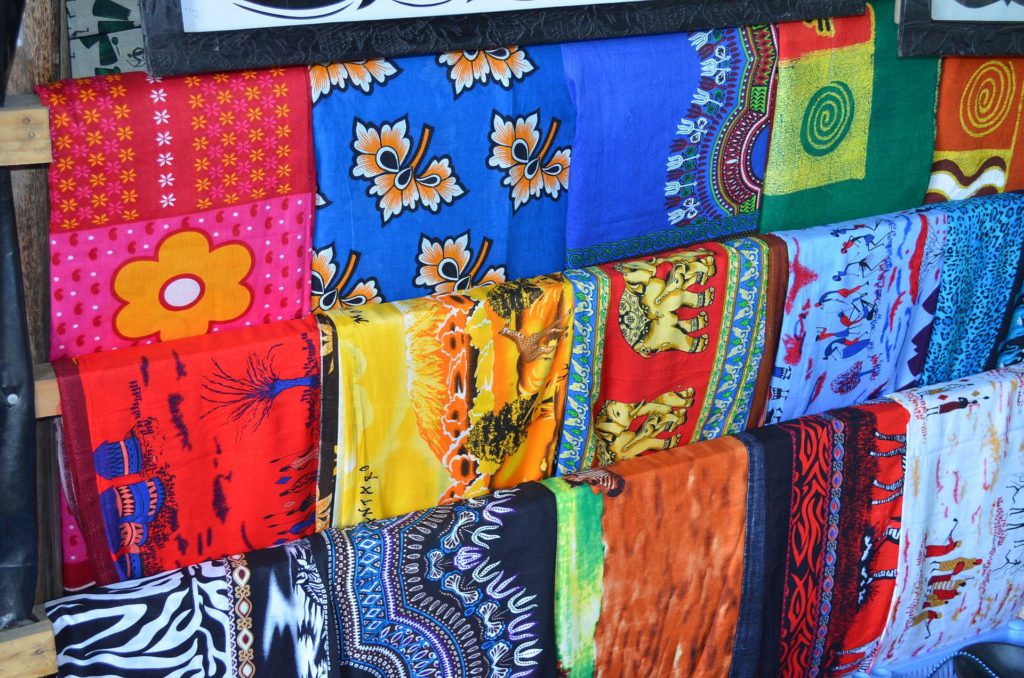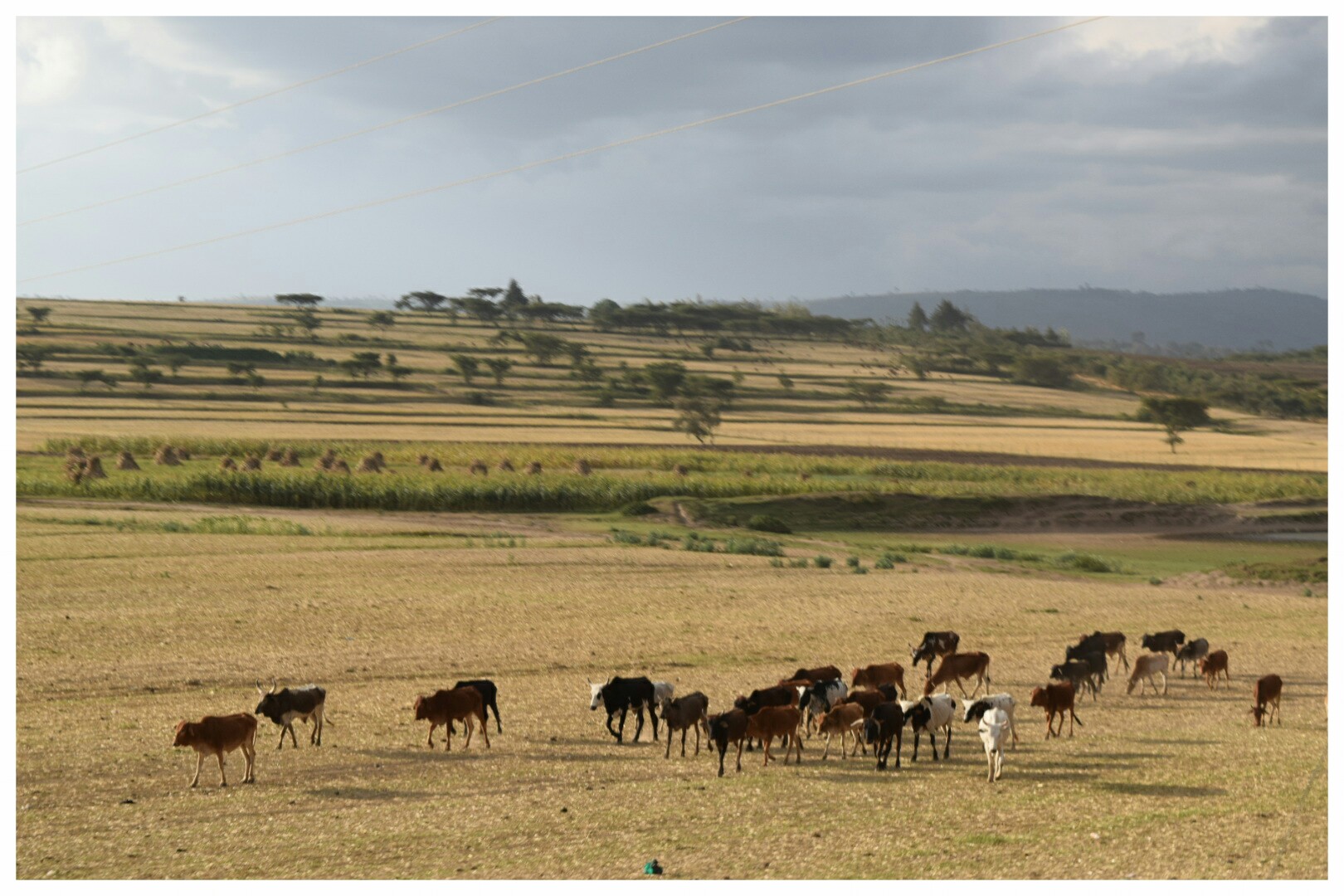Sweet wine, proverbs stitched into clothes, a 90km road race: Katy Dutko, an educational aid officer in Africa, offers a page from her Kenyan notebook
Maasai Shuka: You may have seen pictures of the Maasai wearing a red cloth that looks similar to a tartan blanket (see above). It’s called a shuka, and is usually worn by men. We kept wondering if there is some historical connection to British colonisers and Scottish tartan, with the different colours and patterns. But so far nobody has been able to confirm or deny this.
We did a little more research into the origins of the shuka and apparently there is no clear answer but our theory is one possibility. The Maasai, while relatively well-known outside of Kenya (thanks perhaps to their presence on game parks and what seems to be a fairly high representation of their clothing, bead work, and other cultural elements as part of Kenyan culture), are in fact a small ethnic group in Kenya – probably about 2% although it’s apparently hard to confirm. They are semi-nomadic and their traditional diet is based on their cows: milk, meat, and blood. We’ve noted a few times that this is pretty much the opposite of ours.
Sweet wine and warm beer: You generally need to specify right away if you want your wine dry or sweet and your beer cold or warm (well, room-temperature) due to common preferences for sweet wine and not-cold beer. It’s a good thing to learn early on if those things don’t sound appealing. Unfortunately, I forgot once and found myself with an overly-generous pour of incredibly sweet white wine at a work event. It took a while to figure out how to surreptitiously rid myself of that.
 Chapati: You can find greasy and very delicious chapati being cooked up on the street and we had fun watching them make it by using an interesting technique of piling one chapati on top of another, constantly flipping the pile over and adding more oil until they have a stack of ten chapatis on the pan that are piping hot and ready to get folded up together into your take-away bag. Note: ten chapatis are a lot to try to consume in one day, even for two hungry people. And they really aren’t as good the next day. Lesson learned the hard way. On multiple occasions.
Chapati: You can find greasy and very delicious chapati being cooked up on the street and we had fun watching them make it by using an interesting technique of piling one chapati on top of another, constantly flipping the pile over and adding more oil until they have a stack of ten chapatis on the pan that are piping hot and ready to get folded up together into your take-away bag. Note: ten chapatis are a lot to try to consume in one day, even for two hungry people. And they really aren’t as good the next day. Lesson learned the hard way. On multiple occasions.
Other streetfood: When we were first staying in Nairobi’s Lavington suburb, we found a nice streetfood spot hidden behind rows of plants being sold on the side of the road. Now that we’ve moved to Westlands, we located a new one near our apartment that happily fills up massive tupperwares of sukumawiki (kale) or githeri (beans and corn) for the equivalent of $2, that’s about £1.50. Considering that the staples at the old streetfood spot were mandazi (dougnnuts), chapati and sweet chai, we have definitely taken a turn for the healthier in our new neighborhood.
 Kanga: These are sarong-sized pieces of cloth (as above) with a colourful motif in the centre and a Swahili proverb written along the bottom.
Kanga: These are sarong-sized pieces of cloth (as above) with a colourful motif in the centre and a Swahili proverb written along the bottom.
You can find a great variety of proverbs or sayings on the Kanga, and we’re getting better at deciphering them. Swahili is fun for the linguistically-inclined grammar nerds among us. If you are interested in reading more about the history of kanga, how it can be used as a means of communication, or seeing some of examples of proverbs, check it out on Wikipedia or relevant sites.
Phrases: There are some intriguing phrases used here, including old British ones such as “hack it” (figure it out) eg “can you hack it?” “if you can hack it…”; “speedy governor” (precise meaning unclear but generally related to anyone who drives fast), “smart” (looking good – especially in reference to clothing made locally, naturally), and “no hooting” (no honking). Since most of the “no hooting” signs are outside apartment buildings and private residences, this is especially charming if you imagine someone making a hooting sound when they drive up to a friend’s house to pick them up.
Dance: We go to a great afrobeat class on Wednesday nights, taught by a dancer who choreographs for a Kenyan group called Sauti Sol (you can find their music easily on YouTube). All the dances and moves that he teaches are fun. But our favourite is a song called Zigwembe.

View during the 90km relay
Fun Runs: We’ve been hashing here in Nairobi, with a more traditional hash (running, drinking, singing). The group is fun and an added benefit is getting looped in to races like the Naivasha Relay which we did about a month ago. It was a 90km race that left from just outside Nairobi and ended up at Lake Naivasha, taking a full day to run through a variety of scenery, altitudes, and temperatures in 16 legs before ending at a campsite by the lake. A few teams had some professional or semi-professional Kenyan runners who would just go blazing off effortlessly when it was their turn – it was really impressive to watch. An awesome experience overall.
We got a little wildlife sighting on the run (see above) and the next morning we met guests at the campsite who used to share the space with grazing hippos at night (eek!) prior to the installation of an electric fence. Our main visitor was a giraffe who came grazing in the morning.
Grocery sagas: A number of the big grocery store chains here have had rapidly dwindling stock since September to the point where they spread out what few things they have to cover a long shelf with one product (some examples include household paper products, unappealing varieties of jam, and biscuits). One of the biggest chains, Nakumatt, apparently is experiencing these shortages due to what seem like pretty terrible business practices.
What we heard from friends is that the owner of Nakumatt would take products from vendors, put them in the store and sell them, and, in many cases, not pay the vendors for 3-6 months. People put up with this for a long time, apparently, because Nakumatt is such a popular chain that you were missing out if you didn’t have your product in their stores. But finally they decided enough was enough and stopped providing new stock to Nakumatt. So now the supermarket is just selling what it has left, which is a pretty random assortment of stuff, and has been shutting down and downsizing many of its branches.
 Kenya elections: You’ve probably heard a bit about the elections in Kenya over the past few months.There were a string of surprises here in what people considered to be a high-stakes ballot: Kenyans initially cast presidential votes in August, and the incumbent president, Uhuru Kenyatta (see left), was declared the winner by 1.4 million votes. Opposition leader Raila Odinga challenged this outcome, and in September the Supreme Court nullified the results and called for a rerun within 60 days.
Kenya elections: You’ve probably heard a bit about the elections in Kenya over the past few months.There were a string of surprises here in what people considered to be a high-stakes ballot: Kenyans initially cast presidential votes in August, and the incumbent president, Uhuru Kenyatta (see left), was declared the winner by 1.4 million votes. Opposition leader Raila Odinga challenged this outcome, and in September the Supreme Court nullified the results and called for a rerun within 60 days.
Just weeks later, however, Odinga surprised the country and threw the new vote into question by withdrawing his candidacy and telling his supporters to boycott the election, saying that Kenya’s election commission couldn’t oversee a credible poll without significant changes. His supporters listened, boycotted the election, and perhaps not surprisingly the incumbent Kenyatta won by a landslide.
Now, Odinga has contested the results again. He arrived back in Nairobi on Friday after a protracted visit to the States, and his supporters organized a rally which was met with some police/government crackdown. The results are supposed to be re-tallied and announced again, so we will see how that continues to play out. And then, of course, there is a meme going around that features Kenyatta turning to Odinga and saying in Swahili, “You should go to Zimbabwe. I hear there’s a vacancy there.”

